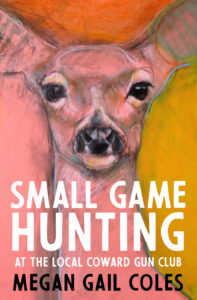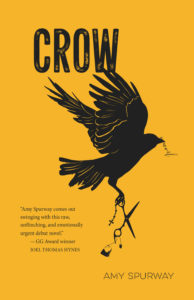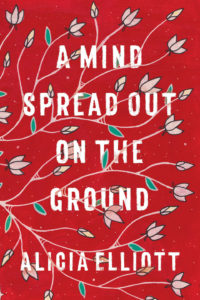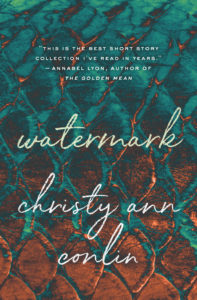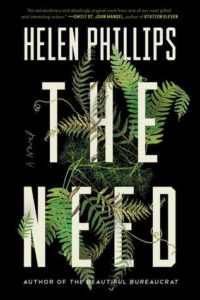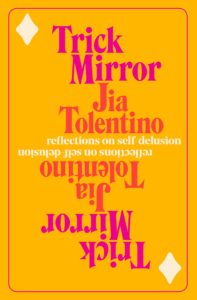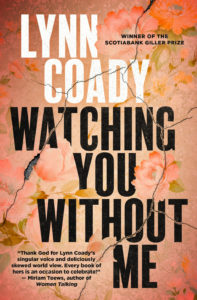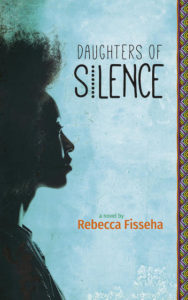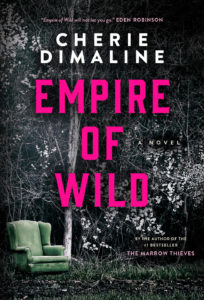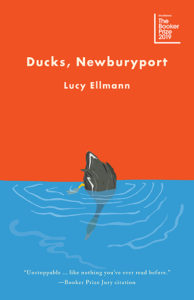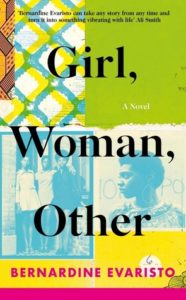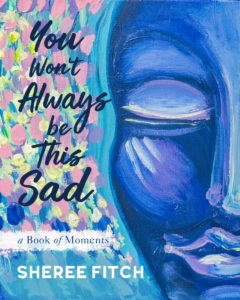January 20, 2020
Gleanings
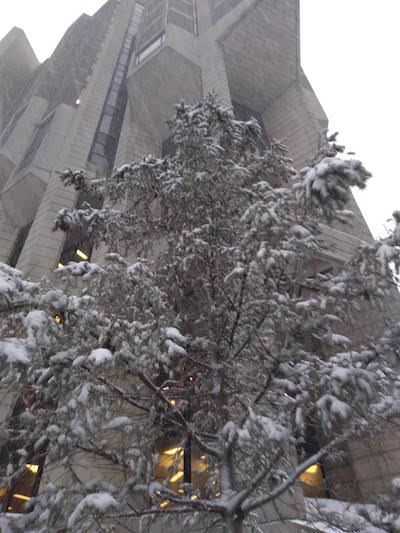
- “It is worthwhile to point to the absences, the silences, the erasures in stories. But the questions should be an invitation to creation, not an end to conversation.”
- The book feels like listening to a friend tell the story of living eight years in a place she was initially only curious about but came to deeply love… including, and maybe especially because of, the tough moments.
- Telling stories helps. As necessary as bread.
- The character got a spark from the person once, but at this point the two flames burn entirely separately.
- What happens if you decide to just embrace something you love? Be a champion for that thing?
- Another good reason to double up our meetings, when and if we can, is simply because we love them and they’re an excuse to help us through the winter.
- Maybe, like Greek philosophy, parenting, too, can offer one model for holding the difficulties of the present moment in mind, but differently.
- Don’t you just love it when that happens, when you think… rum, again?? And it all begins to feel like a kind of reading serendipity is happening.
- I love going out for dinner with a friend. French fries. A Cabernet. Three, four hours of uninterrupted, juicy conversation. Equally, I love not going out for dinner. And not talking.
- Rather, time alone in the woods created a personal, quiet space in which I have always been able to find composure, contentment and serene happiness.
Do you like reading good things online and want to make sure you don’t miss a “Gleanings” post? Then sign up to receive “Gleanings” delivered to your inbox each week(ish). And if you’ve read something excellent that you think we ought to check out, share the link in a comment below.
January 16, 2020
Spring Books on the Radio
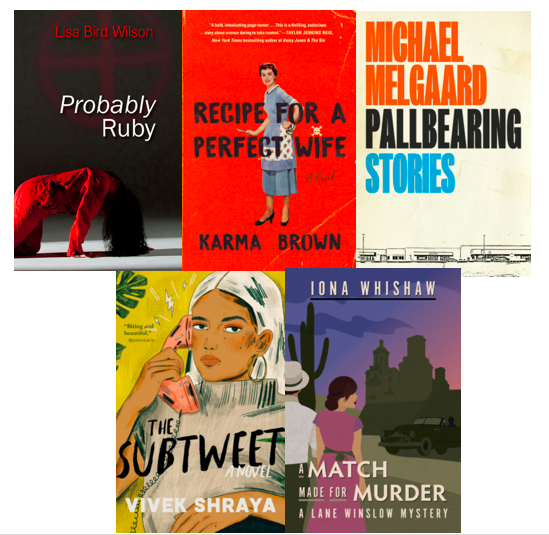
I was on the radio today (live, in-studio!) talking with Wei Chen on CBC Ontario Morning about a handful of Spring Books I’m looking forward to in 2020. You can listen online if you missed it live—I come on in Part 1 at 41.41 (though “Blinding Lights,” by The Weeknd, is on right before me, so you might want to listen to that too).
January 15, 2020
Marching

I don’t know that so much has really changed since that November night back in 2016 when I’d baked a Hillary Clinton victory cake in determined optimism. (“And if she loses,” I’d decided, “at least we’ll have cake.” But that cake tasted terrible.) The only really substantial change has been that I’ve since had my eyes opened to the realities of the world, to the fact that people in general are less kind, wise and curious than I used think we were, and it had been my privileged position to exist without having to know that.
But one more thing that’s different—these days I also keep a collection of broomsticks on my porch.

The broomsticks are fitting really, because most of us haven’t heard this much about witch hunts since the 17th century, although our family doesn’t use our broomsticks for flying. (At least, not yet.) Instead, our broomsticks are for marching, which was an altogether new experience for us as we joined tens of thousands of people at Queen’s Park on that mild January Day for the 2017 Women’s March. As we walked through our neighbourhood holding our signs (duct-taped to said broomsticks, and also a couple of dowels I’d picked up at the hardware store), it already felt like a parade, neighbours leaving their houses holding their own signs, passing cars honking their support.
I remember the ground softened by mild temperatures, my green rubber boots going squish in the mud on the lawn at Queen’s Park, and how it seemed like everyone we knew was there. And how everyone who wasn’t there was out on a similar march in cities all around the world. I remember feeling hopeful for the first time in months, and that maybe we weren’t so alone after all, and good things were possible. People spread out as far as I could see in all directions, an endless horizon of humanity who’d come out to stand up for social justice, and perhaps all was not necessarily defeat.

The Women’s March was originally cast as a failure, even before it had taken place. In the weeks before the event, as there were struggles about organization and inclusion, so many pundits and cynics declared it just so, but the march itself defied them. The march itself, of course, being the team of organizers on the ground that organized events in towns and cities all over the world, in Toronto, in my particular case. And I don’t know that I will ever be able to properly be able to express my gratitude to those organizers for what they gave all of us that day, for that light in the darkness. For rekindling some hope, and making us feel part of something bigger and stronger than tyranny or authoritarianism.
In spite of an event that broke all precedent (and almost broke the president!) and managed to set records and change the world, the narrative of the Women’s March being fraught would continue to be perpetuated. There was a breakdown between an administrative body and local grassroots organizers. There was controversy among those who’d been figureheads of the March in the US. Subsequent marches did not bring out the same numbers. In 2020, in Toronto, there would not be a march at all.
And yet.
Three years later, there is that collection of broomsticks on my porch. Since January 2017, when none of us had ever marched in the street before, or ventured outside with a political slogan on a button, let alone a placard, we’ve pulled out our signs and demonstrated to show support for refugees in Canada, and for International Women’s Day. I’ve joined small demonstrations of strangers to counter anti-choice protesters on the sidewalk. We’ve taken part in Fridays For Futures, strikes to stand up for climate change action, and I’ve even organized rallies against education cuts in our school community, and joined our neighbours back on Queen’s Park to stand with Ontario education workers. In the two years following January 2017, we all marched in the Women’s March again—last time in the midst of a blizzard.

I am not an activist. I say this not because I don’t respect activists, but because I do, and I don’t want to take credit for any of their work on account of a handful of broomsticks. Although what is an activist anyway, but an ordinary person who cares about things and is willing to make a stand for a better vision for the future—which is the kind of people we resolved to be in the aftermath of that terrible night, as we choked down the crumbs of that very sad cake.
I’ve been to enough demonstrations by now to be less delighted by old women who can’t believe they still have to protest this shit, or the ones who’d been buried but no one knew they were seeds. But I still believe in seeds—I do. And I know the seeds planted on that January day three years ago will continue to bloom in years to come. I know that the Women’s March, for so many of us, was a political awakening to our responsibilities as citizens and neighbours to help build the kind of world we want to see.
The Women’s March has ended—but it was only supposed to be the beginning anyway. And now the rest is up to us.
January 14, 2020
Back to the Blog: One Year Later
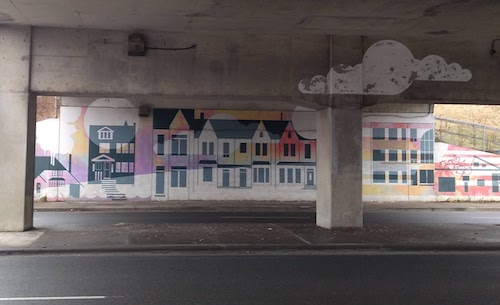
I’m certainly no Faith Popcorn, but I think I called it. Almost exactly a year ago, as part of my 2019 intention to conduct myself with more audacity, I declared The Back to the Blog Movement. Was I not blogging because the world no longer made any sense, or had the world stopped making sense because I wasn’t blogging? And as the near year began, I decided perhaps it was the latter, and embarked on a reset and rediscovery of the blog and its myriad possibilities.
And I wasn’t alone, because because my Back to the Blog post got tons of responses, brought new readers and blogs to my attention, and—in the true tradition of old-school blogging—inspired a handful of other writers’ blog posts, including Meli-Mello (my blogging friend of more than a decade!), Rebecca Rosenblum, Shawna Lemay, and my fave swimming blog.
As the year went on, the movement picked up steam, as CanLit blogging pioneer Bookninja returned to blogging, and Steven Beattie resurrected his blog That Shakespearean Rag, and (tongue in cheek, of course) we all know that it’s when men start doing things that people begin to pay attention. (I find blogging and gender fascinating. Of course, it’s impossible to talk about blogging in general terms, because blogs can be infinite different things, and a gendered lens only makes it more so. I once read an entire book about the history of blogging that didn’t have a single woman in it [nary a mommy blogger, nor a knitter, even!] save for the one woman founder of Blogger, who only appeared in the book while running out of a meeting in tears.)
It was good to have these book blogging stalwarts back, and to have connected with other bloggers too throughout the year so that my own blog-reader got longer. I also started a weekly series called Gleanings, in which I went back to the blog in an old-school round-up sense, posting links to the pieces (at blogs and elsewhere) that made the internet a worthwhile place for me to be a reader.
In March I wrote the post “Why Your Own Small Corner of the Internet is Going to Make the World a Better Place”, framing blogging as a way of taking back online spaces, countering the toxicity and meaninglessness of a lot of current internet discourse. “Blogs are important in 2019 because they aren’t underlined by corporate interests, because what parts of them we read aren’t determined by algorithms, because of their focus on language at a moment when politicians are making meaninglessness into an art form, because of their obscurity even and how they give us the freedom to explore off our own beaten track, because they’re not part of an industry that’s flailing, dying, desperate. There’s nothing desperate about a blog. ”
It was the spirit of blogging (and audacity!) that carried into my two big projects of last year, establishing the boutique bookseller Briny Books and my online blogging course Blog School. The idea that small things matter to real people, that little steps can take us somewhere, guided the same DIY ethos that has been inherent in blogging since the beginning. From 20 years (!) of blogging, I have learned that the path is meandering, but it takes us places, and that we get there by putting one good post in front of the other, by simply not stopping. Even when we’re tired. Even when it seems like nobody is reading. Even when the world doesn’t make any sense, but it’s when the world doesn’t make sense that we need blogging most of all.

MAKE THE LEAP is the guided and interactive version of my online course. It’s running throughout February, and it’s an ideal program for writers looking to make the leap to blogging with guidance, feedback, and community engagement. I’m looking forward to spending the month working with a great group of writers, having fun pushing the limits of what blogs can do, and reading and sharing inspiring posts. I hope you’ll join us. Spaces are still available, including one last discount space for students already enrolled in FIND YOUR BLOGGING SPARK.
January 9, 2020
Gleanings
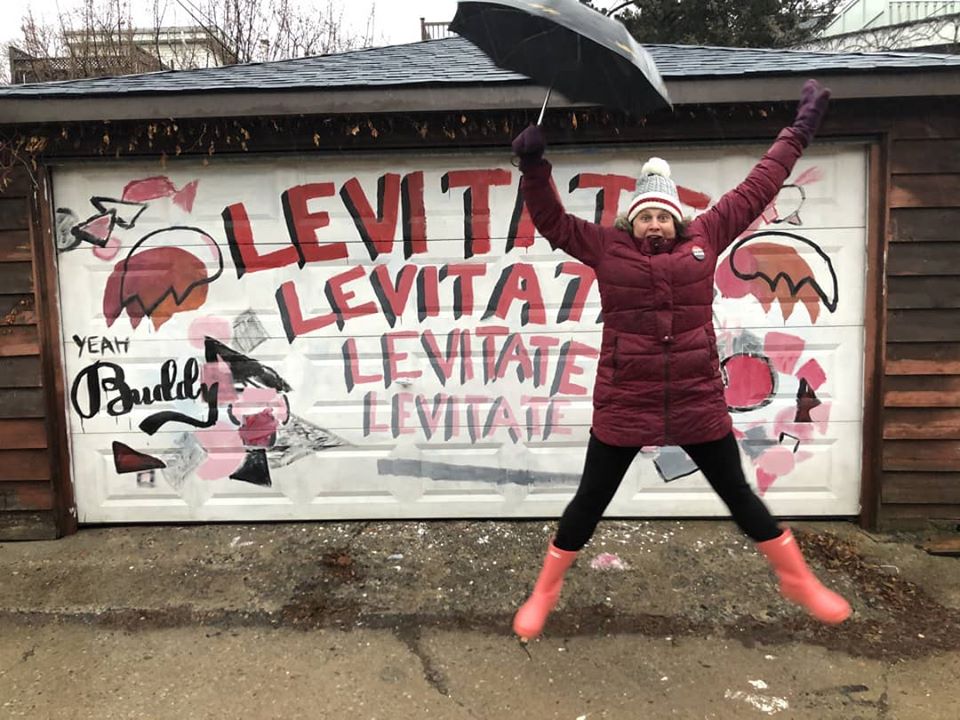
- The one benefit of not being able to follow in our parents’ footsteps is that we are forced to make our own.
- When I’m standing on the shores at Middle Cove Beach, about ten minutes’ drive from our house in St. John’s, I’m thinking of other shores and other waters: the mudbanks in Suriname, the white sands in Vlissingen, the wind and waves around the Cape of Good Hope—and the lives and stories of the enslaved and indentured.
- Don’t call my experience a patient “story”
- I’m grateful for all of it, even the uneven stitches, the courses of squares that won’t align properly, the stars that often need to be picked out and begun again (measure twice, cut once)…
- Sticky toffee pudding is usually made with dates and almost every person I’ve ever told that to who has had it but doesn’t peruse recipes for fun and entertainment (crazy!) has found that baffling
- Recommended, even with Katharine’s bookish preferences, which are completely antithetical to blogging…
- The rising of Grace Paley’s feminist consciousness—its fits and starts, fears and regrets— may be traced in her stories.
- Reading is not a competitive sport, but that doesn’t stop me from challenging myself…
- It’s the time of year I make my annual resolution to be weirder, more eccentric.
- In the fog of my fever, I could see the finished chapbooks and they were lovely.
- THAT SAID … I may write more about books in 2020.
- This is an experiment in how one book calls to another …
- To get us in the mood for all things Meg, Jo, Beth, Amy, Marmee and Laurie, I’m sharing two poems from the novel and a recipe from the new Little Women Cookbook by Wini Moranville
- Something in me relished the thought of going up to people and saying, “Listen to me, something terrible is about to happen, and I can save you.”
January 8, 2020
A Delicious, Meandering Journey

‘Interestingly, I find myself leaping/flipping/scrolling past the “best of” lists and instead gravitating more and more to the reflections about reading as exploration, revelation, often deliciously meandering journey, shared experience, opportunity to bust out of staid categories and forge new ones … and more.’ —Vicki Ziegler
Sometimes I think I spend my whole year reading just go get to this point, when the best-of lists are compiled, required reads for book club or review assignments are completed, when the literary year is done and dusted…but there’s still at least a week of time for reading left.
Which is when I turn off my WiFi, take an internet break, out-of-office reply—”I’ll get back to you in the new year.” And I sit down to read.
I read differently in the holidays, when the working is all done. Instead of new releases (because I don’t want to miss a thing), I turn to yellowed paperbacks purchased at book sales, back-list titles by authors I love, strange books plucked from Little Free Libraries, and rescued from the streets. Books that are easy not to make a priority in my literary year, but on holiday, they take precedent—and my reading life is so much more interesting for it.
They weren’t all winners—after having now read two books by Ottessa Moshfegh, I think I can finally conclude that her work is just not to my taste, for example. But altogether, these books were part of why my holiday was so lovely—and I loved too their connections, how they spoke to one another, as though book after book was just one book, and the story flowed and almost made sense.
Of course, it wasn’t all obscure. Ben Lerner’s new novel, The Topeka School, is one of the top rated books of 2019, and I bought it after hearing Lerner and his mother Harriet Lerner (author of iconic book The Dance of Anger) on a podcast. Hot tip: if you want to me to buy a book by a man, make him fictionalize his feminist mother in that book and even give her a point of view. I’d already tried to read The Topeka School twice, but had been diverted, not because anything was wrong with it, but other books kept showing up before I got to page 12. Finally got past page 12 (third time’s charm) and really liked this one, and had my mind-scrambled by its meta-ness. It was such a curious and interesting book, which captures a cultural moment (1997) that was pivotal in my own experience (I turned 18 that year, and the memories are very vivid) and connects that moment in several ways to our present.
I also read Colson Whitehead’s The Nickel Boys, another top book of 2019, and am so glad I did—plus it reminded me of Jesmyn Ward’s 2018 Sing Unburied Sing, I loved the depiction of 1970s’ New York, and oh, the twist. The book is brutal, but there is more to the novel than just that.
The third 2019 book I read was Fleishman is in Trouble, by Taffy Brodesser-Akner, which I got for Christmas. I never get books for Christmas, because I’m very much a self-directed book buyer—but my husband heard me talking about how I was more than 500th on a wait-list for this book at the library, and bought it for me. And I loved it so much. Probably deserves a post of its own, but yes, it had everything and was so devourable—by Boxing Day, I’d got to the end.
Had very much a New York streak going on, especially between the Brooklyn of Lerner’s book and Darcey Steinke’s Flash Count Diary, and Fleishman and My Year of Rest and Relaxation.
And then I left town to finally finish Elizabeth McCracken’s Here’s Your Hat, What’s Your Hurry, her first book re-released along with her latest, the novel Bowlaway (a novel that was delicious and meandering itself, and also one of my favourite books of the year). The mingling humour and sadness—she’s such an incredible writer.
And then Woolf’s Night and Day, which I bought in the summer after I saw an ad on Instagram for a 1970s version of the novel whose cover I fell for. It’s always funny to be reading early Woolf, back when her narrative style was so conventional. The characters were a bit wooden, and the story more about ideas than its people actually being realized, but it was still really enjoyable, and Woolf after all.
And speaking of conventional, Penelope Fitzgerald is conventional never, but The Beginning of Spring (which I finished reading on the morning of New Year’s Eve) is perhaps the most straightforward of her novels that I have read. (As I’ve written before, learning to appreciate Penelope Fitzgerald is a project of mine.) I like to read a bit of Penelope Fitzgerald during the holidays out of nostalgia for the year I read her biography by Hermione Lee, which was one of the best reading extravaganzas I have ever had. Anyway, The Beginning of Spring is set in Moscow in 1913, and this reviewer calls it Fitzgerald’s masterpiece. I really loved it.
Before the year was out, I had also finished reading Jhumpa Lahiri’s In Other Words, a book she wrote in Italian about the experience of learning and then to committing to reading and writing in Italian. (Which would lead me to Natalia Ginzburg—but first!!)
First, I ended 2019 and started 2020 with At the Pond, a collection of essays (a gift from my friend Nathalie) about swimming at London’s Hampstead Ladies’ Pond, contributors including two of my favourite swimlit stars (Leanne Shapton and Jessica J. Lee) AND my very favourite everything, Margaret Drabble. Nice to be returned to the London of Night and Day, although Katharine Hilbery never went swimming.
(On New Year’s Eve, Stuart and I both had Taylor Swift’s “London Boy” in our head, which is a terrible song, the situation exacerbated by the London locations of our respective reads [Stuart is LOVING Girl Woman Other, which, incidentally, was the second book I broke up with Ben Lerner for] and every time anyone in my book mentioned Highgate, I’d start singing, “…And I love his best mate. All the rumours are true…”)
Two things I loved about At the Pond: cultural diversity of the authors made it such a more interesting collection than it might have been. And the essay by nonbinary writer So Mayer on their complicated relationship with the space “for women only”—which has long welcomed transwomen among them without fuss, save for the activists who showed up at a recent community meeting in furor about this.
Then I read The Secret Sisterhood, about women’s literary friendships, which I bought in March on a weekend in Niagara on the Lake with my two best friends of more than a quarter century. The Jane Austen chapter was a bit slight, but I enjoyed the book and nice to bring things around with the final section on Woolf and Katherine Mansfield—especially since it focussed at lot on Night and Day (which Mansfield wrote a scathing review of, which made their friendship at bit…awkward).
And finally, All Our Yesterdays, by Natalia Ginzburg, the kind of book that it might be possible to put off reading forever, because it’s old with an unappealing cover, and pages and pages of dense text. I’d bought it at a colleage book sale last year after reading Gizburg’s essay collection Little Virtues, but novel sat unread on my shelf. And then I gave it away to my local Little Free Library, which I regretted after running into an Italian-Canadian friend at the library who was returning a pile of Ginzburg’s novels in their original language. She extolled the authors virtues, so when I happened to walk by the Little Free Library and saw All Our Yesterdays up for grabs, I stole it back. Finally cracking it open now because Jhumpa Lahiri had also written about Ginzburg, and it seemed like a sign.
I loved this book. Sweeping, strange, curious and compelling, it’s the story of two families in Northern Italy and how they change as WW2 arrives and continues. The narrative is very matter-of-fact and understated, creating a sense of inevitability (it actually reminded me a but of Girl Woman Other, how a single story can contain so much and so broadly). The banality of living under Fascism, and then occupied Italy after the Germans arrive, and the casual brutality of war.
Now I really want to track down a copy of Ginzburg’s Family Sayings, which won the Strega Prize and which seems to be cited as her best work. (PS Just found out it’s in print with the title Family Lexicon. YAY!!)
January 7, 2020
MAKE THE LEAP with Blog School!
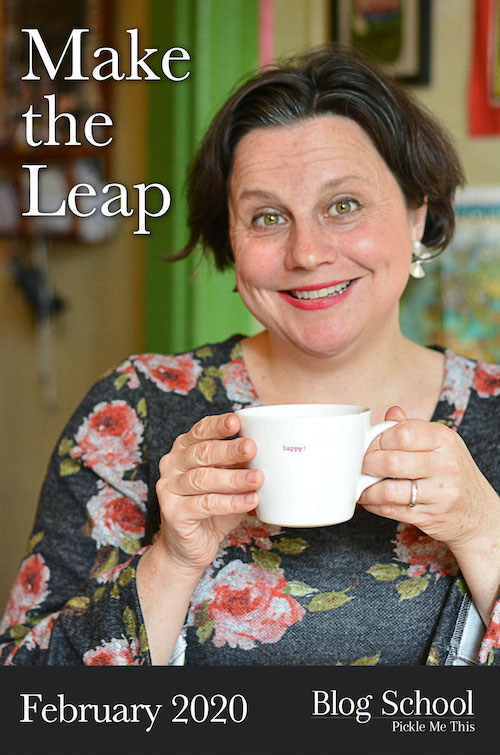
In September, I launched BLOG SCHOOL: PICKLE ME THIS, and my first offering was a self-directed blogging course called FIND YOUR BLOGGING SPARK.
Self-directed, I thought, because self-direction permits bloggers to work at their own pace and convenience. A self-directed course, I figured, meets a writer where she’s at.
And it does!
But there are some people looking for a little more direction than the self can provide, who thrive on goals and deadlines, plus the community support essential in getting ‘er done.
And these people have been asking me for a different version of the FIND YOUR BLOGGING SPARK course, an intensive, community-based, guided and interactive version where students can ask questions, get feedback, work to goals, and benefit from community support.
And now MAKE YOUR LEAP in February 2020 is here!
What You Need to Know:
- Course is online (via private website) so that you can study at Blog School from wherever you are
- Course is interactive, so you can ask creative and technical questions via email and receive feedback on your work
- Community components will take place on a private Instagram page, so that it’s easy and straightforward to take part
- Course enrollment is capped at 10 people so that the group is neither too big or too small, but just right
- Modules themselves are self-directed so you can take part (with two modules with be completed per week) according to your own schedule
- Course takes place throughout February 2020 so that you can stay focussed and excited about your project, which you’ll complete with momentum to build on
- Each module includes a writing exercise to generate ideas for future blog posts
- Each module features a writing assignment so that you will complete the course having 7 new blog posts published
- Modules are structured as blog posts so you can get comfortable engaging with the blog format within the course itself
- Each module comes with optional further reading to inspire you with the work of other bloggers and creative people.
Cost: $300.00 CDN
*Three spaces will be available for $80 for students who are already enrolled in the Find Your Blogging Spark Program.
January 6, 2020
New Year Reflections
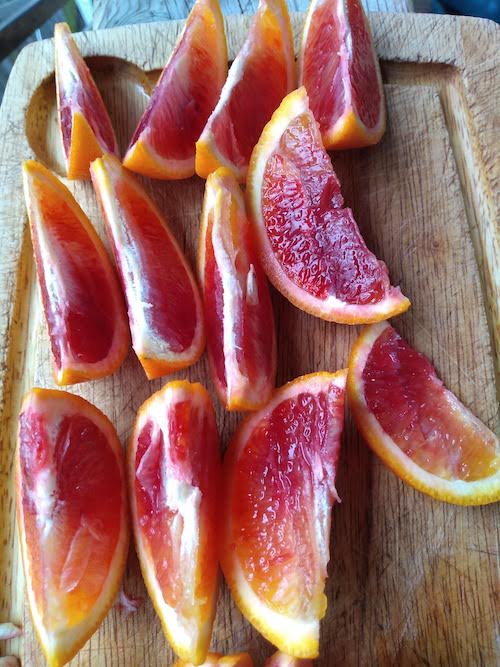
Nobody got sick. I think it’s safe to say it now, with the holiday over and the children back to school, though I felt uncomfortable even thinking it during the break, a jinx. Which is just one of the reasons that our holiday was so exceptional, the other being that Stuart took two full weeks off work and therefore so did I. A low-key affair—we didn’t travel far. But it was all of it such a pleasure, and has me thinking—as we return to routine—not about new year’s resolutions, necessarily, but instead about what elements of our holiday I’d like to carry with me into the months ahead.
- Less Time on the Internet : I took a full seven day break from the internet and it was amazing. This is the most important answer to the question of how I got so much reading done (see below). It did wonders for my stress levels. It was so nice to be reminded that if I do something beautiful and it doesn’t get instagrammed that it still happened. When I finally went back online in the second week, I did a lot less posting and scrolling, and I want to keep this up (or down). That said, I do now have a backlog of blogs to catch up on, but that is not a bad thing.
- Board Games: I like board games for the same reason I like reading with my kids—it allows us to connect on a common level and I want to work on nurturing these connections as my kids get older. I have many aversions when it comes to games (Stuart calls it my “board game face,” and knows as soon as he sees it that I’ll be asking, “Like, what’s the point of this?) but there are many I do enjoy, and we spent a lot of time this holiday playing these, which was good fun for everyone.
- Reading: “I’m going to try to get into reading in 2020,” was the hilarious joke I kept telling over the break, and because I’m better at reading than I am at humour, I came away with 14 books read, a splendid and eclectic mix of titles that I’ll be writing about in a further post this week.
- People: My favourite parts of the holiday were times spent with family and friends, and I want to continue to nurture these connections in the coming months. Especially in the winter, it’s sometimes easy to retreat from the world, and sometimes asking to make plans seems like a risky endeavour (what if they say no! Schedules are tricky to accommodate!) but I am so glad we made the plans we did over the holiday. Speaking of which…
- Cheese boards: Did I by Lisa Dawn Bolton’s book On Boards because we were entertaining a few times over the break, or did I make plans to entertain because I needed an excuse to buy a copy of On Boards? Who knows, but I am sure glad it all worked out the way it did. I learned so much from this book, our guests were seriously impressed (and at least twice ended up purchasing the book themselves!), and the Christmas Day cheese board we made in lieu of a roast dinner has changed my life. I might never roast turkey again.
- Letting things slide: I don’t know if you could say I was easygoing over the holiday, because this is me, and the fact that I’m writing about this at all defeats the argument, but I feel like I was a little less ridiculous. The one example I can point to is that we started the Globe Holiday Crossword, had fun with it until we didn’t, and then stopped doing it. I would like to be more okay with not finishing things in the new year, or maybe what I mean is not insisting on doing things for the sake of doing them. We also woke up more than once on a day with no plans, and I want to keep that kind of openness and possibility going too.
- Chocolate: I want to keep eating chocolate. I probably don’t need more of an explanation than just that.
December 20, 2019
Gleanings
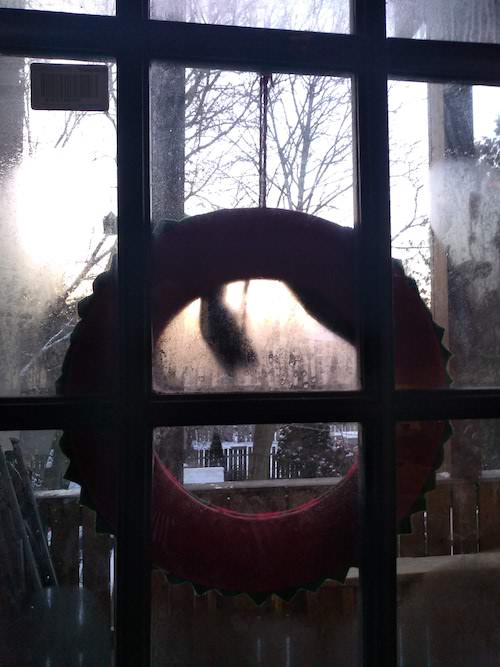
- The only legacy that feels right to leave them is a literary legacy. A shared love of books that we have read together. I like to think this would have happened even without a terminal diagnosis but with it the pressure is on to make every moment -—even moments spent reading—count.
- “Why is my stocking cold?” my mother asked nervously on Christmas morning in 1992.
- Create what you like, create what you want to eat (so to speak).
- Our urge to mark midwinter and celebrate the days growing longer precedes Christianity by thousands of years
- The magic of Christmas prevails regardless of such details. It’s in the anticipation.
- What Maeve and Danny are really contemplating when they park across the street from it all those times is their past, their family, their story, and in a way, isn’t that what we all do when we return, mentally or literally, to the places we used to live and the people we used to be?
- I’m simply just not good at Christmas.
- Did anything change when I learned it was actually a gun rack?
Happy Holidays! I am taking a holiday from the internet and will see you in the new year.
December 17, 2019
2019 Books of the Year
I am officially over Books of the Year lists. Part of this is because last year I was charged with writing three of them, which kind of underlined the arbitrary nature of the exercise, and also because seeing the same titles listed over and over is decidedly boring, and undermines the value these lists might possibly have. And finally because I have so many different kinds of connections to the books I’ve read this year, and it’s these connections that matter to me more than any hierarchical ranking. (Also: what about all the Best Books I haven’t read yet?)
So it’s the connections that I’m celebrating in my year-end books list for 2019, not THE best books, as much as MY best books, which also function as a record of how I spent my year, literary and otherwise. It was a good one.
The Coven Books
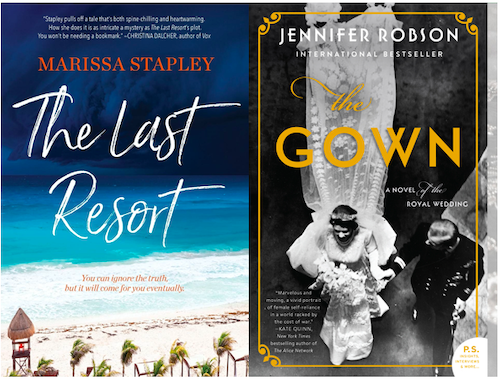
My friend Jennifer Robson’s smash hit The Gown was the first book I read in 2019, and it set the standard high for my literary year. I was also happy to celebrate the June arrival of our pal Marissa Stapley’s latest, The Last Resort, and had the great pleasure of interviewing both authors at events this year.
The January Books
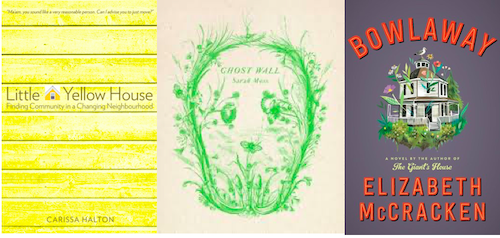
January is hard. These were the books that delivered some light in the darkest time of year.
The Big Book
Small Game Hunting at the Local Coward Gun Club, was big, bold and brave, like nothing I’d ever read before (except for Megan Gail Coles’ 2014 short story collection, which I loved). That it ended up on the Giller Shortlist was one of my favourite literary stories of the year. Maybe not a book for everybody, but what a better world we’d live in if it was. I loved this book (and Coles on CBC Q was radio gold.)
The Madeleine L’Engle Reading Project
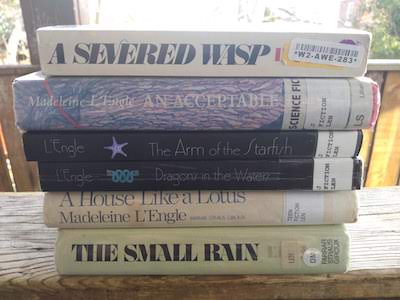
The most significant part of my literary year was a deep dive into Madeleine L’Engle’s non-Wrinkle bibliography. In February, I stumbled upon attractive new editions of her Austins series, which I’d read without focus when I was young, but encountering them again was such a revelation. I read all the Austin books (which are realism, in comparison to her Wrinkle series) and the O’Keefe series (which bridges the other two), and then The Small Rain, L’Engle’s first novel, because decades later she’d written a sequel to it, A Severed Wasp, whose characters include Suzy Austin as a grownup. (I also took A Severed Wasp tour of New York City in May.)
It was the best.
Read my blog posts about the reading project here.
The Blew-My-Mind Book
This book would come to mean a lot to me, my most recommended title of the year, I think. I’d already chosen three titles for Briny Books before I read Crow, but knew as soon as I finished it that Crow would have to be part of the mix.
If you haven’t read this book yet, you’re missing out. I loved it. Oh, that epilogue. Still not over it.
The Briny Books

For the first half of the year, Briny Books was my TOP SECRET PROJECT. I wanted to find a way to take my book reviews and recommendations further, to put excellent fiction directly into the hands of readers. Featuring these titles has been an absolute pleasure, and such a joy too to have such a fantastic reader response, that other people love these books as much as I do.
The Lived-Up-To-All-The-Hype Book
Alicia Elliott is a treasure, and her debut essay collection is as generous as it is brilliant. I loved this collection for its craft, its analysis, and wide-ranging ideas, as well as its honesty and candour. Essay at their finest, and deserving of all its praise and acclaim.
The Opposed-to-Boxes Book
You’ve never read a novel like Bina, even if you’ve read Malarky and Martin John, all part of Anakana Schofield’s literary universe. A novel whose structure is a series of warnings scrawled on the backs of envelopes, warnings which must be considered in their specificity. Schofield’s work is proof that fiction can innovate without alienating its readers.
The Book that Changed How I Live in the World
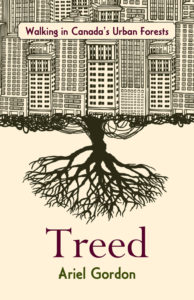
I’ve never looked at a tree the same way since reading Treed, by Ariel Gordon, and I look at trees all the time. A book that dares to make sense of complicated ideas—what it means that death and decay are natural, forests in the city, loving nature at a moment of climate crisis. To me, this book was like a balm.
The Book I Spent My Birthday With
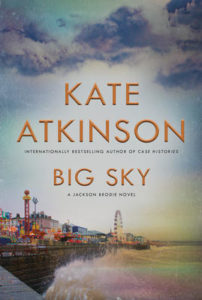
I turned 40 in June, and spent the weekend on the beach and in a hammock reading this terrific book by Atkinson, who I always love, from the series that awakened my love of detective fiction. I loved it so much.
The Cottage Reads

Does it even count as a holiday unless you’ve managed to read a book a day? I don’t think so. Luckily, my cottage week in July did not disappoint. I finally read Pachinko, became a Sally Rooney devotee after finding Conversation With Friends a bit meh, and indulged in some old school Meg Wolitzer. It was perfect.
You can read my round-up here.
The Stole-My-Heart Book
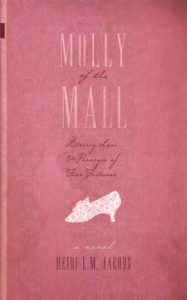
Honestly, she came out of nowhere, the novel about a woman who is obsessed with 19th century literature, set at the West Edmonton Mall. An obvious set-up? Right. Ha ha, no—but it was perfect. I loved this book, and while I think that it is meant for a more specific kind of readership instead of readers in general, I can count myself and some of the best people I know in that circle.
The Covered in Bugs Book
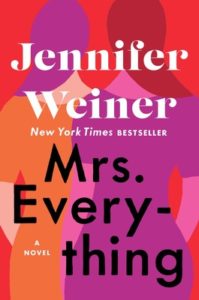
I took this novel camping in August and wasn’t sure about it at first, but then it grew on me—and did it ever—I couldn’t stop reading… Reading with my flashlight in the tent after everybody had gone to sleep, which attracted all the midges that got stuck between the pages. The book is now absolutely and disgustingly covered in bugs, but I loved it, and I am also really proud of the review I wrote about it, which begins, “I had an oddly optimistic revelation about the world the other day…” I KNOW.
The Perfect Summer Day Book
Watermark, by Christy Ann Conlin, was already pretty special to me even before I held an impromptu literary salon in my living room to celebrate it (which was definitely my favourite literary event of 2019!!). I read it over the course of a weekend in August, on the beach, at the playground, walking to the bakery to buy provisions for friends imminent arrival for dinner. I was compelled by its momentum, and enjoyed it start to finish. So yes, then it was such a pleasure to get to celebrate it IRL!!
The Freaked Me Out Book
This was one of those books that kept creeping onto my radar—I think it was a recommendation by Mary Laura Philpott that finally did it, after seeing it mentioned elsewhere. A sci-fi book for those who don’t necessarily like sci-fi. Oh, and it was on a recommended summer reads shelf at Book City in the Beaches, which was where I finally bought it, and with the first few pages, I was gripped. One of the weirdest and best novels about parenthood I’ve ever read.
The Hard to Track Down Book
My second favourite thing (after waiting in long lines at the bookstore till) is when a book is sold out everywhere. It took me two weeks and multiple bookstores to finally track down a copy of Trick Mirror, and what a good thing then that the essay collection turned out to be everything I’d hoped it would be. So worth the trouble.
The Gripping Plot Book
I adore Lynn Coady’s work, so it was no surprise that I ended up loving her latest novel so much. As always with Coady, the actual surprise was in the wonderfully strange and unexpected direction she pushes her work in, in the way she insists on writing unexplored corners and resisting expectations of what a woman should be writing about, or (at least) coming at these ideas from an innovative angle.
The So-Glad-I-Read-it-Twice Book
I had the opportunity to read Rebecca Fisseha’s debut novel as a manuscript last spring, and then to come back to it again in the fall in preparation for her book launch, where I interviewed her. And I am so grateful for a reason to read Daughters of Silence again—it’s such a puzzle of a novel, and to read it for a second time was a fascinating process of discovery.
The Read-A-Thon Winner
One of the highlights of this year for me as a reader was the opportunity to take part of the Turning the Page on Cancer read-a-thon. With generous support, I helped to raise more than $1500 and got to read for eight straight hours (!!!). Fortunately for me, quite a few of those hours were spent on Cherie Dimaline’s Empire of Wild, which I loved so much. I couldn’t put it down because I really couldn’t (and that was fine).
The As-Good-As-I’d-Hoped Book
“Should I buy The Dutch House?” was an honest-to-goodness dilemma for me—because I like Patchett well enough, but am not a devotee, and wondered if I wanted to buy the book just because everybody else was. Would I be disappointed? Mercifully, I wasn’t. The Dutch House was a delight, worth every single penny, and I loved it.
The Should-Be-On-Your-Radar Book
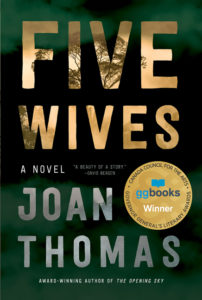
I’m honestly kind of sorry on behalf of Canadian readers coast-to-coast that we weren’t having Five Wives, by Joan Thomas forced in front of our faces all the time, especially after it was awarded the Governor General’s Literary Award for Fiction. Because it’s so great and I didn’t read it for ages—but Stephen Henighan on Twitter singing its praises and Thomas’s interview at 49thShelf made me finally pick it up. Good thing too. It’s terrific.
The More-Than-a-Feat-of-Endurance Book
What’s that quote by some guy about why he climbed a mountain? “Because it was there.” No, that is not the reason you ought to read Lucy Ellmann’s Everest of a novel, which for me was a three month project. No, you ought to read it because it’s fascinating, an exercise in blurring the line between fiction and reality (not just in the way the book gets into your head), and the preposterousness of modern life and the impossibility (or not?) for literature/fiction to contain it.
The Only Booker Winner We Need
There are a number of contenders for the title of BOOK I CAN’T SHUT UP ABOUT this year, but I think Evaristo’s Booker-winning novel takes the cake. Another book that, like Ducks, opens up wide to contain so many many stories—but I read this one in two days. It was DELIGHTFUL. If you put this title at the top of your holiday reading list, I promise you won’t be sorry.
Bonus Book
And one more—I haven’t had a chance to write about this book yet, but Sheree Fitch’s You Won’t Always Be This Sad is one of the most remarkable titles I’ve read this year. And yes, it is sad—poet Fitch is writing about the recent death of her adult son—but Fitch’s gift has always been to explore all sides of things, and she shares that with us here—there is so much love, and even joy. This book is a revelation.
